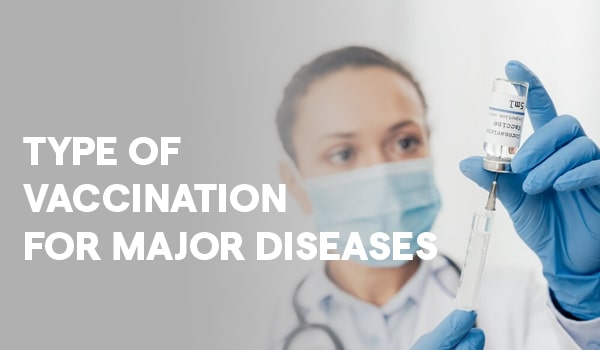There are several types of vaccines, each with its own approach:
- Live-attenuated vaccines: These contain a weakened form of the live virus. The weakened virus replicates slightly but cannot cause a full-blown disease. Examples include vaccines for measles, mumps, rubella (MMR), and chickenpox.
- Inactivated vaccines: Here, the virus or bacteria is killed before being introduced into the body. Examples include vaccines for polio, influenza (flu), and hepatitis A.
- Toxoid vaccines: Some diseases are caused by toxins produced by bacteria. Toxoid vaccines contain an inactivated form of the toxin, training the body to fight the toxin and prevent illness. Examples include tetanus and diphtheria vaccines.
- Subunit vaccines: These vaccines contain only specific parts of a virus or bacteria that are essential for causing disease. This allows for a more targeted immune response and can sometimes reduce side effects. Examples include vaccines for hepatitis B, shingles, and HPV.
- Viral vector vaccines: These innovative vaccines use a modified virus to deliver genetic material from the target virus into cells. The cells then produce proteins that trigger an immune response. This is the technology used in some COVID-19 vaccines.
- mRNA vaccines: These groundbreaking vaccines use messenger RNA (mRNA), which carries instructions for making specific proteins. The mRNA instructs cells to produce viral proteins, which the immune system recognizes and builds defenses against. This is another technology used in some COVID-19 vaccines.
- Childhood diseases: The MMR vaccine protects against measles, mumps, and rubella, three highly contagious diseases. The varicella vaccine prevents chickenpox, a common childhood illness with potential complications. The rotavirus vaccine guards against a leading cause of severe diarrhea in infants and young children. The DTaP vaccine protects against diphtheria, tetanus, and pertussis, all serious bacterial infections. The Hib vaccine prevents Haemophilus influenzae type b infections, which can cause meningitis and pneumonia. The pneumococcal conjugate vaccine (PCV) helps prevent pneumococcal disease, including pneumonia and meningitis.
- Respiratory diseases: The influenza vaccine, commonly known as the flu shot, helps prevent seasonal flu infections, reducing the risk of severe complications. The pneumococcal vaccine is crucial in preventing pneumonia, a potentially life-threatening respiratory infection. These vaccines help reduce the severity and spread of respiratory illnesses, particularly in high-risk groups like young children and older adults.
- Sexually transmitted infections (STIs): The Hepatitis B vaccine protects against a virus that can cause liver inflammation and lead to chronic liver disease. The HPV vaccine guards against human papillomavirus, which can cause cervical and other cancers. These vaccines protect against viruses that can cause liver disease and certain cancers.
- Travel-related diseases: The hepatitis A vaccine prevents a viral liver disease transmitted through contaminated food and water. The typhoid fever vaccine protects against a bacterial infection causing high fever and gastrointestinal issues. The rabies vaccine is essential for preventing a deadly viral infection transmitted through animal bites. The yellow fever vaccine guards against a mosquito-borne virus causing severe illness. These vaccines are essential for travelers visiting areas where these diseases are common.
- Other major diseases: The Tdap vaccine serves as a booster against tetanus, diphtheria, and pertussis, preventing potentially fatal bacterial infections. The shingles vaccine protects against the varicella-zoster virus, reducing the risk of painful shingles outbreaks. The meningococcal vaccine guards against meningitis, a severe infection of the brain and spinal cord caused by specific bacteria.
Important Considerations:
- Schedule: Vaccination schedules vary depending on age, health conditions, and travel plans. Consult your doctor or pediatrician from the best medicine hospital in India to determine the recommended schedule for you or your child.
- Boosters: Certain vaccines necessitate booster shots to ensure sustained long-term immunity. It is essential to adhere to your healthcare provider's recommendations and receive these boosters as scheduled to maintain optimal protection against diseases.
- Side effects: Most vaccines cause mild side effects like soreness at the injection site, fever, or fatigue. These are usually temporary and indicate that the body's immune system is working. Serious side effects are extremely rare.
- Contraindications: Some people may have medical conditions that make them ineligible for certain vaccines. Discuss any concerns with your doctor.
To know more about Vaccination Book An appointment with Sir Ganga Ram Hospital.
